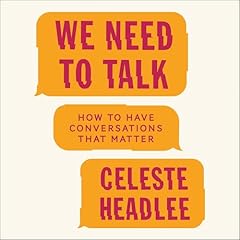
Cradle to Cradle
Remaking the Way We Make Things
No se pudo agregar al carrito
Add to Cart failed.
Error al Agregar a Lista de Deseos.
Error al eliminar de la lista de deseos.
Error al añadir a tu biblioteca
Error al seguir el podcast
Error al dejar de seguir el podcast
 Exclusivo para miembros Prime: ¿Nuevo en Audible? Obtén 2 audiolibros gratis con tu prueba.
Exclusivo para miembros Prime: ¿Nuevo en Audible? Obtén 2 audiolibros gratis con tu prueba.Compra ahora por $16.51
-
Narrado por:
-
Stephen Hoye
Why not take nature itself as our model? A tree produces thousands of blossoms in order to create another tree, yet we do not consider its abundance wasteful but safe, beautiful, and highly effective. "Waste equals food" is the first principle the book sets forth. Products might be designed so that, after their useful life, they provide nourishment for something new - either as "biological nutrients" that safely re-enter the environment or as "technical nutrients" that circulate within closed-loop industrial cycles without being "downcycled" into low-grade uses (as most "recyclables" now are).
Elaborating their principles from experience redesigning everything from carpeting to corporate campuses, the authors make an exciting and viable case for change.
©2002 William McDonough and Michael Braungart (P)2008 TantorLos oyentes también disfrutaron:




















Reseñas de la Crítica
"A readable provocative treatise that 'gets outside the box' in a huge way. Timely and inspiring." ( Kirkus)
Las personas que vieron esto también vieron:




Slow but worthwhile
Se ha producido un error. Vuelve a intentarlo dentro de unos minutos.
It can be a bit demoralizing when you consider how prolific at producing waste and polluting our world and, by extension, our own bodies.
But ultimately it is a call to action to rethink the way we interact with our landscape at every level.
Required Reading for Thoughtful Humans
Se ha producido un error. Vuelve a intentarlo dentro de unos minutos.
I say all that with the small disclaimer that the tone and choice of words do carry a white/western/male perspective. I include that, not to disparage that perspective, but to remind people that other perspectives do exist. Contributions from various perspectives should be included in the conversations and research surrounding sustainability, as the book itself subtly acknowledges.
Regret to say that the much-needed message of the book is a little overshadowed by the reader's inflection, which isn't monotonous, exactly, but repetitive. It makes paying attention more difficult, and the replayability virtually non-existent, for me. I have since obtained physical copies of both this book and its successor, "The Upcycle".
Great Book, Sub-par Narrator
Se ha producido un error. Vuelve a intentarlo dentro de unos minutos.
Instructive -all should read
Se ha producido un error. Vuelve a intentarlo dentro de unos minutos.
Should be a world wide requirement all businesses
Se ha producido un error. Vuelve a intentarlo dentro de unos minutos.


